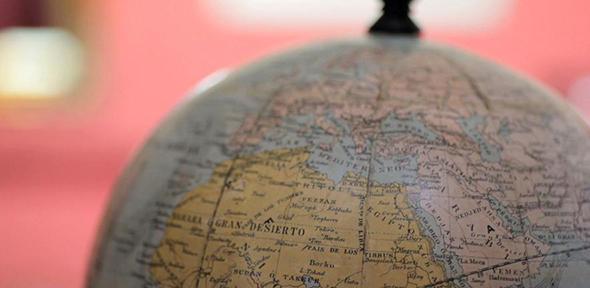
Professor Eilís Ferran, Pro-Vice-Chancellor for Institutional and International Relations, reflects on Cambridge’s role in the world.
In an increasingly unsettled world, Cambridge is more open than ever to talented people and excellent ideas from around the globe
Professor Eilís Ferran, Pro-Vice-Chancellor for Institutional and International Relations
What does it mean, today, to be a global university? Does it mean that a university reflects global diversity, or that it addresses global issues? Is it about building global partnerships, or about demonstrating global leadership?
It is, of course, all these things. The University of Cambridge is an international hub. Our 19,000-strong student body includes almost 8,000 international students from more than 120 different countries. They make up nearly a quarter of our undergraduate population, and nearly two-thirds of our postgraduates.
Close to 15 per cent of our staff (and at least one-third of our researchers and lecturers) are from outside the UK. Two-thirds of all our postdoctoral researchers are from overseas. The University has upward of 100 registered international societies. Our Language Centre provides teaching and resources in more than 170 languages.
At the same time, the University of Cambridge has a very significant global presence. We have research collaborations in more than 135 countries (65 per cent of Cambridge’s publications have international co-authors). We are at the centre of a network of more than 450 volunteer-led alumni groups in 115 countries – the widest reaching network of any university in the world, bringing together almost 60,000 overseas alumni.
Beyond the numbers, our diversity is reflected in the willingness to acknowledge a multitude of world views, and to integrate the full range of talent available to us – regardless of nationality, gender, sexual orientation, ethnicity or financial capability.
We are also a truly global university because we address global issues. Whether it is food security or energy sustainability, whether it is the threat of climate change or the realities of mass migration, the challenges we face are international – and so, too, will be the solutions. Infectious diseases are not bothered by borders. Regardless of whether we are in Cambridge or Cape Town, we are all affected by the problems of ageing societies.
Global leadership
A global university like Cambridge must establish global partnerships. Collaboration between universities – within countries as well as across borders – is no longer optional. In an age of diminishing resources, and as the scale and complexity of the challenges increase, collaboration is a necessity.
World-class research is a global project. Truly global universities are those able to harness the power of strategic partnerships – with other universities, with businesses, with civil society, with governments.
A final qualification is the ability to take on a role of global leadership. Despite the perceived breakdown of public trust in institutions, research universities may be among the few institutions with the means and the legitimacy to bridge the gaps between different disciplines, between different sectors of society and between different cultures. This legitimacy gives a university like Cambridge a convening power unlike anyone else’s – and also a tremendous responsibility.
Cambridge is well placed to discharge its global leadership responsibility. This requires confidence, creativity and close cooperation. It also requires the humility to acknowledge that we cannot contribute to society on our own.
We have just marked a full year of fruitful collaborative research with partner universities and government agencies at the Singapore-based Cambridge Centre for Carbon Reduction in Chemical Technology. Our Cambridge-Africa Programme, the University’s flagship capacity-building initiative, continues to thrive. In the year of the 70th anniversary of Indian independence, Cambridge will celebrate its close ties to India’s institutions and researchers through a year-long programme of events, including a series of exhibitions in the University’s museums.
In an increasingly unsettled world, Cambridge is more open than ever to talented people and excellent ideas from around the globe, and it draws strength from the richness of our global partnerships. That is why I am confident to describe the University as a truly global institution.
Professor Ferran’s comments first appeared in issue 80 of CAM, the Cambridge Alumni Magazine.
